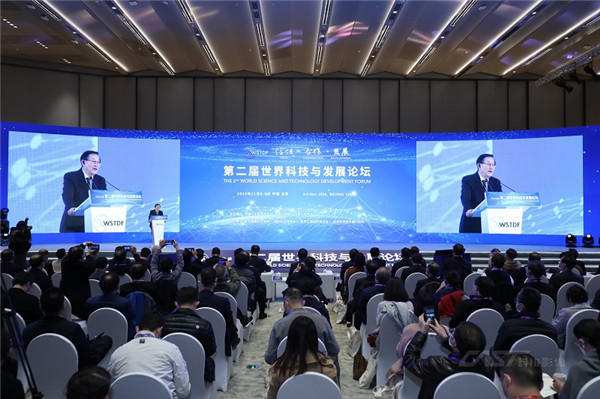Home> News
Scientists list year's 10 top questions
Updated: 2020-11-12 (China Daily)

The second World Forum on Science and Technology Development is concluded in Beijing on Monday. [Photo/CNR]
Ten major scientific questions that are crucial for humanity's socioeconomic development-covering public health, security and resource management-were released by scientists at a forum in Beijing on Monday.
Meeting the challenges will enhance communication and collaboration in the global scientific community and help the world achieve sustainable growth, they said.
The questions listed this year have national significance for China and will serve as key common grounds for international cooperation in the next five years, allowing the country to further contribute to humanity's treasure trove of knowledge, officials said.
The 10 questions, nominated by scientists and science journal editors from over 10 countries and regions, were published during the second World Forum on Science and Technology Development, which concluded in Beijing on Monday.
The four public health questions were: how climate change affects infectious diseases; how to effectively tackle highly contagious viruses like SARS-CoV-2; how to use new technologies to better safeguard public health; and how to diagnose chronic diseases early.
On security, scientists want to figure out how to use new technologies to ensure food safety; how to tackle climate change and natural disasters; and how to improve crop varieties to alleviate food shortages and protect food security.
As for resource management, the biggest scientific questions awaiting answers are: how to respond to the rapid depletion of natural resources; what new technologies and materials can create and store clean energy; and how to increase the efficiency of solar energy.
Zhou Ji, a professor of material sciences at Tsinghua University, said listing the questions will help the global scientific community organize and exercise the best of its resources and skills and jointly achieve the sustainable development goals proposed by the United Nations.
Richard Horton, editor-in-chief of the medical journal Lancet, said it is "absolutely essential" to select 10 questions each year that the global scientific community should focus on.
Commenting on the COVID-19 situation, Horton said the disease is a threat to every human being, and the world should strengthen the bonds of trust and solidarity to get through the pandemic successfully.
"As I've said before in many forums, Chinese scientists and health workers have made immense contributions to the response to this cruel pandemic," he said. "When I think about the work of Chinese scientists and doctors, we really owe them a debt of gratitude."
Roger Kornberg, chairman of the World Laureates Association and the Nobel laureate in chemistry in 2006, said on Sunday that China has devoted a large portion of the blueprint for its 14th Five-Year Plan (2021-25) to science and technology, with a great emphasis on international cooperation.
"My colleagues, friends and I feel gratified about this and we think it the sincere aspiration of China to enhance cooperation with the world scientist community," he said.
